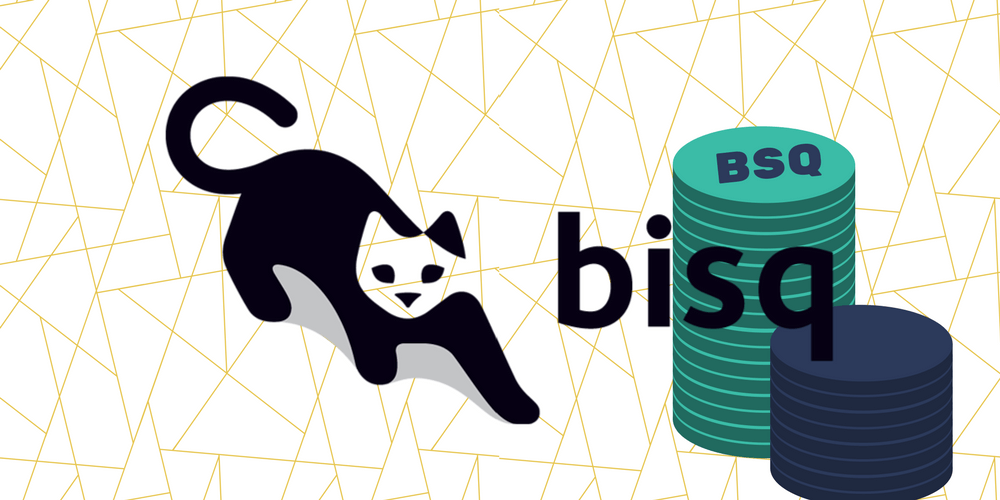
While there were many attempts to create decentralized exchanges in the early days of bitcoin trading, Bisq (formerly Bitsquare) is one of the few options still standing. After existing in the wild for more than a year, the developers behind the project are now looking to turn the project into a decentralized autonomous organization (DAO).
Bisq is creating a new token for their DAO platform, but they will be forgoing the initial coin offering (ICO) process that has led to millions of dollars worth of cryptocurrency put in the hands of projects that sometimes have nothing more than a white paper to show potential investors.
What is Bisq?
Bisq is an open-source desktop application that allows users to buy and sell bitcoins in exchange for traditional fiat currencies or altcoins in a decentralized manner. According to the project’s official website, a “decentralized arbitration system and security deposits” are used to secure the trades that take place on Bisq.
The trading platform also features Tor integration in an effort to offer better privacy for its users.
The way in which Bisq is structured allows users to avoid placing their funds in the hands of a centralized exchange. These sorts of traditional bitcoin exchanges have been hacked many times over the years, a problem that can be avoided by allowing users to maintain control over their private keys.
Of course, there are other quasi-P2P bitcoin trading platforms out there too, such as LocalBitcoins and BitKan, so CoinJournal reached out to Bisq founder Manfred Karrer to get more information on how his platform differs from these other offerings.
“The main difference to [LocalBitcoins] is that we are fully decentralized and don’t require that users need to register,” said Karrer. “At Bisq there are no servers to get hacked, there is no company to shut down, [and] there is no middleman you need to trust. The protection of users’ privacy is a main element. We use a P2P network over Tor hidden services and no central party collects or has access to the [trading] data. It is software enabling people to exchange directly with each other. We are not the exchange, we provide the software.”
The Bisq DAO
More recently, the Bisq team have announced the launch of a DAO as the next step for the project. To create the Bisq DAO, new tokens (called BSQ) will be issued on top of the Bitcoin blockchain by way of their own, custom implementation of the colored coins concept. Colored coins is a method of signifying that a small amount of bitcoin represents some asset other than their base value as bitcoin.
This new token is said to have three use cases on the Bisq network: voting on future contributions to the project, paying for those contributions, and paying Bisq trading fees at a 90 percent discount (as compared to fees when paid in bitcoin). BSQ tokens that are used to pay trading fees will be destroyed.
Unlike the many different Ethereum-based ICOs that have collectively raised over two billion dollars so far in 2017, the initial BSQ tokens will be handed out to those who have already contributed to the project in the past.
“Bisq is already operational and we don’t need [millions of dollars] to build it,” Karrer told CoinJournal when asked why he isn’t doing an ICO. “What we need is a token to make the value exchange between the traders and those who work on the project possible. That can be achieved without an ICO. We further see it [as] irresponsible to ask for that much money as most ICOs are doing and want to provide a valid and sustainable counter model. The main function of our DAO model is not to collect quick money but to enable a decentralized management model and economy for Bisq.
Will This Model Work?
Although Bisq has decided to avoid the ICO route, questions remain as to whether creating a DAO will make sense for the platform. For example, it may be possible for an attacker to buy up a majority of the BSQ tokens in an effort to control the direction of the project on their own.
When asked about this effective 51% attack, Karrer told CoinJournal that this potential attack vector is another reason not to do an ICO. The initial distribution of BSQ tokens will go to those who have already shown an altruistic interest in helping the project, and Karrer believes they will be incentivized to continue their work on the project and not sell to the highest bidder.
Karrer added that the balance of voting power will also be shifted towards those who are working on the project rather than token holders in the future.
“We will shift the weight for voting to reputation over time,” said Karrer. “Planned is about 70% reputation and 30% stake but that will be decided by the stakeholders.”
Testing of the Bisq DAO is expected to begin in October.

